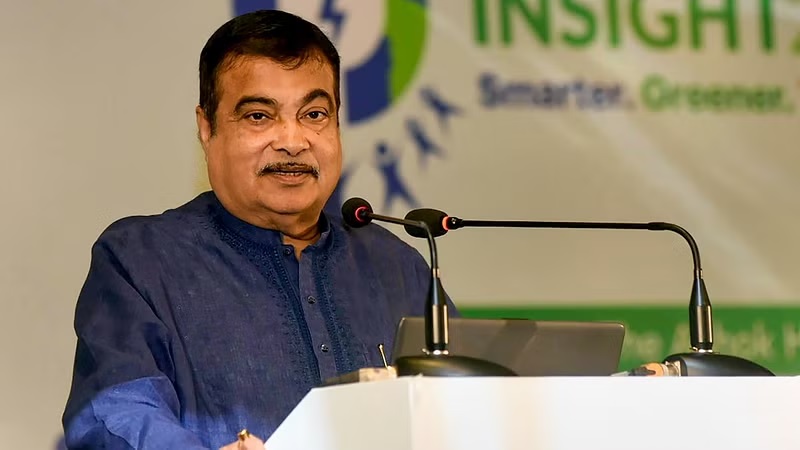
NEW DELHI: The road transport ministry is working on a uniform toll policy to benefit national highway users, Union Minister Nitin Gadkari said on Monday.
Gadkari also asserted that now India’s highway infrastructure matches that of the US.
“We are working on a uniform toll policy. It will address the problem faced by the commuters,” he told PTI in an interview, without elaborating further.
Gadkari was responding to a question on simmering discontent among users of National Highways on account of high toll charges and sub-par road-user experience.
The longest-serving road transport and highways minister said that the ministry has decided to initially implement a barrier-less global navigation satellite system (GNSS)-based toll collection system on national highways.
The Ministry of Road Transport and Highways, Gadkari said, has been taking the complaints made by commuters on social media very seriously and is taking strong action against contractors involved.
At present, while private cars constitute about 60 per cent of the traffic on national highways, the share of toll revenue from these vehicles is barely 20-26 per cent.
Toll charges have increased on highways even as more and more stretches have come under the tolling system over the past 10 years, often leading to rising user discontent.
Total toll collection in India touched Rs 64,809.86 crore in 2023-24, a 35 per cent rise over the previous year. The collection was Rs 27,503 crore in 2019-20.
All user fee plazas on National Highways are established as per the provision of National Highways Fee (Determination of Rates and Collection) Rules, 2008 and the respective Concession Agreement.
Gadkari expressed confidence that in the current financial year, the highways ministry will surpass the previous record of 37 km per day highways construction in 2020-21 financial year.
Around 7,000 km highways been constructed so far in the current financial year. Traditionally, the pace of highways construction is higher in the February-March period.
The pace of highways construction in the country has touched a record 37 km per day in financial year 2020-21.
The highways ministry had constructed 13,435.4 kilometres in 2020-21; 10,457.2 km in 2021-22; 10,331 km in 2022-23, and 12,349 km in 2023-24.
Gadkari also said this financial year, the ministry will award highways projects of 13,000 km.
The ministry had awarded highways project of 8,580.5 km in 2023-24. The pace of highway project awards has slowed down considerably in the absence of a new scheme to replace the Bharatmala Pariyojana.
According to Gadkari, under the Bharatmala Pariyojana, the ministry had the power to award highway projects of up to Rs 3,000 crore, now the ministry cannot approve any fresh projects under the Bharatmala Pariyojana.
“For any project worth above Rs 1,000 crore, now we need to take the approval of the Cabinet. So, we have sent projects worth Rs 50,000-Rs 60,000 crore to the Cabinet for approval,” he said.
“Once we get clearance, we will start working on those projects,” the minister added.
With an aim to reduce delay cost overrun and disputes, an inter-ministerial panel that appraises major highway projects has told the ministry to accept bids only after acquiring 90 per cent of the land required for the projects and getting all statutory projects such as forest and environment.
“This condition has affected the pace of award of highway projects,” Gadkari said.
The government approved Bharatmala Pariyojana in 2017, covering a length of 34,800 km to improve connectivity and reduce logistic costs in the country.
As of October 31, 2024, projects covering a total length of 26,425 km have been awarded and 18,714 km has been constructed.
India has the second largest road network and its National Highways span a total length of 1,46,195 km, forming the primary arterial network of the country.
Responding to a question on the Delhi assembly election, Gadkari asserted that the BJP will come to power in Delhi this time as people are angry with the AAP-led government.
Delhi goes to polls on February 5 and the results will be declared on February 8. The election will decide whether the AAP retains power, the BJP stages a comeback or the Congress revives its presence.
The AAP had won 67 of 70 seats in 2015 and retained 62 in 2020. With the BJP gaining momentum and the Congress attempting a resurgence, the battle for Delhi promises to be one of the most intense in years. (PTI)

